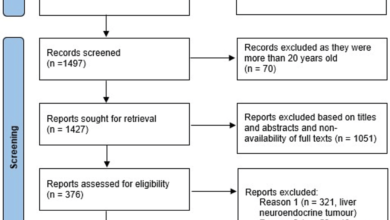Quantum Bits May Boost AI Capabilities

Quantum computing and artificial intelligence (AI) are converging, promising to push computing boundaries to transform industries and accelerate discoveries.
Quantum computers harness quantum mechanics principles to perform complex calculations. They could turbocharge AI systems’ processing power by leveraging quantum bits (qubits) properties like superposition and entanglement. This quantum-AI synergy could tackle computationally-intensive tasks beyond classical computers’ reach, potentially helping to power breakthroughs in medicine, materials science, financial modeling and cryptography.
While integrating quantum computing and AI is still in its early stages, partnerships between quantum computing and networking companies aim to accelerate progress in this field. As research and development continue, experts anticipate that quantum computing could impact AI by enabling machines to process and analyze vast amounts of data much faster than computers. For example, quantum-enhanced AI could potentially optimize complex supply chain networks, reducing costs and improving efficiency for businesses worldwide.
“AI plus quantum computing will have potential impacts for a wide array of mission-critical services, including cybersecurity, healthcare and finance, because of the ability to solve for complex concepts,” Kristin Gilkes, global innovation quantum leader at EY Global, told PYMNTS. “EY is already exploring examples of this with partners such as SandboxAQ in the area of drug discovery, IBM in DNA Sequencing, and Dell in Optimization. For example, AI + quantum simulations can be used to probe complex molecular behavior while simultaneously testing for new drug applications and cancer treatments, significantly cutting down on R&D costs and democratizing the industry.”
Indications of Commercial Viability
Pasqal, a company specializing in quantum computing, and Welinq, a firm focused on quantum networking, have announced a partnership to advance the technology. The collaboration will allow Pasqal to connect multiple quantum processors, helping to overcome challenges in scaling the technology for more reliable quantum computing.
“Our collaboration is centered on creating tangible solutions by integrating Pasqal’s precision in quantum processing with Welinq’s innovative networking and quantum memory systems,” Georges-Olivier Reymond, CEO and co-founder of Pasqal, said in a news release. “This is quantum advancement with real-world application in mind, striving to solve complex problems with greater efficiency and reliability.”
Matthijs van Waveren, a quantum computing expert at CS, a Sopra-Steria company, told PYMNTS that quantum computing could revolutionize AI in three key areas: precision, speed, and energy efficiency.
“Quantum computing can bring the following to AI: Improvement in precision, quantum speedup, and reduction of energy usage,” van Waveren said. Quantum computing can discover better quality classification and segmentation solutions by searching the solution space differently, he said, citing a project his firm did for CNES, the French space agency. “We showed we could improve the quality of segmentation of satellite images using a quantum annealer.”
Asked about the timeline for these applications, van Waveren said improvements in segmentation are already being seen in test systems. However, he noted that two hurdles must be overcome before commercial applications become a reality: increasing the number and quality of qubits in quantum computers.
“We expect that we will see commercial applications of quantum image classification and segmentation in approximately three years,” he said.
He also discussed the potential impact of AI quantum computing on general applications and commerce, particularly in satellite image analysis.
“Analysis of satellite images is a growing field of commerce,” he said. “The amount of data coming from Earth Observation missions is increasing rapidly due to the ongoing launch of new remote-sensing satellites and due to the increasing sophistication of remote-sensing instruments,” he said. “Once AI quantum computing is generalized, we expect that the advantages of quantum speedup and improved precision mean that we will be able to help us process these extremely large volumes of data.”
Quantum Computing Could Revolutionize AI
Carmen Recio Valcarce, a quantum computing engineer and team lead at Moody’s Analytics, told PYMNTS that quantum optimization algorithms could improve AI model training, and quantum circuits can represent more expressive AI models, better capturing correlations and patterns.
Some quantum models have already outperformed classical models in sampling probability distributions. “The power of quantum computing in improving AI presents potential advancements in the field,” she said.
AI can also benefit quantum computing by analyzing quantum mechanical systems, inspiring quantum circuit architectures, and helping quantum computers fight noise and design gates.
However, the timeline for these applications remains to be determined. “Some of the requirements of the quantum algorithms that could augment AI are still under development. For example, a physical implementation of a Quantum RAM is required for many of these algorithms,” Recio Valcarce cautioned. “The realization of a QRAM has been theoretically proven, but concrete hardware implementations are still undergoing.”
According to Joe Fitzsimons, founder and CEO of Horizon Quantum Computing, there are two main approaches to applying quantum computing to AI.
“The first approach is to try to train parameterized quantum circuits in much the same way that neural networks are trained,” Fitzsimons said in an interview. “The hope is that because quantum models can learn to perform calculations using quantum computation rather than conventional computing, they may be more efficient than neural networks.”
This approach is still experimental, and Fitzsimons believes a second approach holds more promise. “The second approach is to try to accelerate the training and use of machine learning models already used on conventional computers. There has been significant success in finding such algorithms, and it is now known that some machine learning models can be exponentially sped up on a quantum computer compared to conventional computers.”
Fitzsimons himself has worked on Gaussian Process Regression, a machine learning model that can be implemented exponentially faster using quantum computation. However, he cautions that these algorithms require error-free quantum computation and specialized hardware like quantum random access memory (QRAM), which has yet to be demonstrated.
Despite the challenges, Fitzsimons is optimistic about quantum computing’s potential impact on AI. “It’s hard to overestimate the impact of an exponential acceleration on the speed of computation, even if it is restricted to a small number of models,” he said. “This opens up the possibility of applying machine learning techniques to far more complex problems than is currently possible.”



